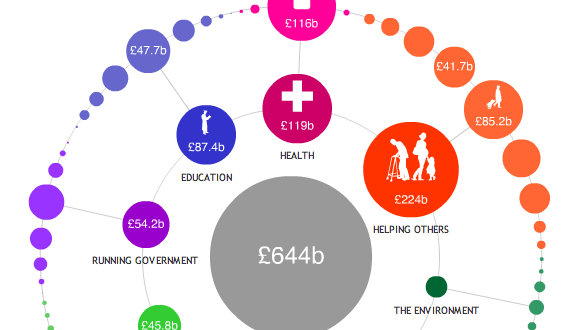The following post is from Jonathan Gray, Community Coordinator at the Open Knowledge Foundation.
With the Mozilla Festival approaching fast, we’re getting really excited about getting stuck into drafting the Data Journalism Handbook, in a series of sessions run by the Open Knowledge Foundation and the European Journalism Centre.
As we blogged about last month, a group of leading data journalists, developers and others are meeting to kickstart work on the handbook, which will aim to get aspiring data journalists started with everything from finding and requesting data they need, using off the shelf tools for data analysis and visualisation, how to hunt for stories in big databases, how to use data to augment stories, and plenty more.
We’ve got a stellar line up of contributors confirmed, including:
- James Ball, Guardian Datablog
- David Banisar, Article 19
- Caelainn Barr, EU Data Journalist
- Paul Bradshaw, City University London
- Nicolas Kayser-Bril, Data Journalist
- Heather Brooke, Journalist and FOI Campaigner
- Lisa Evans, Guardian Datablog
- Rich Gordon, Northwestern University
- Francis Irving, ScraperWiki
- Friedrich Lindenberg, Open Knowledge Foundation
- Cynthia O’Murchu, Financial Times
- Aron Pilhofer, New York Times
- Anthony Reuben, BBC News
- Simon Rogers, Guardian Datablog
- Sascha Venohr, Zeit Online
- Lulu Pinney, Infographic designer
Here’s a sneak preview of our draft table of contents:
- Introduction
- What is data journalism?
- Why is it important?
- How is it done?
- Examples, case studies and interviews
- Data powered stories
- Data served with stories
- Data driven applications
- Making the case for data journalism
- Measuring impact
- Sustainability and business models
- The purpose of this book
- Add to this book
- Share this book
- Getting data
- Where does data live?
- Open data portals
- Social data services
- Research data
- Asking for data
- Freedom of Information laws
- Helpful public servants
- Open data initiatives
- Getting your own data
- Scraping data
- Crowdsourcing data
- Forms, spreadsheets and maps
- Where does data live?
- Understanding data
- Data literacy
- Working with data
- Tools for analysing data
- Putting data into context
- Annotating data
- Delivering data
- Knowing the law
- Publishing data
- Visualising data
- Data driven applications
- From datasets to stories
- Appendix
- Further resources
If you’re interested in contributing you can either:
- Come and find us at the Mozilla Festival in London this weekend!
- Contribute material virtually! You can pitch in your ideas via the public data-driven-journalismmailing list, via the #ddj hashtag on Twitter, or by sending an email to bounegru@ejc.net.
We hope to see you there!

